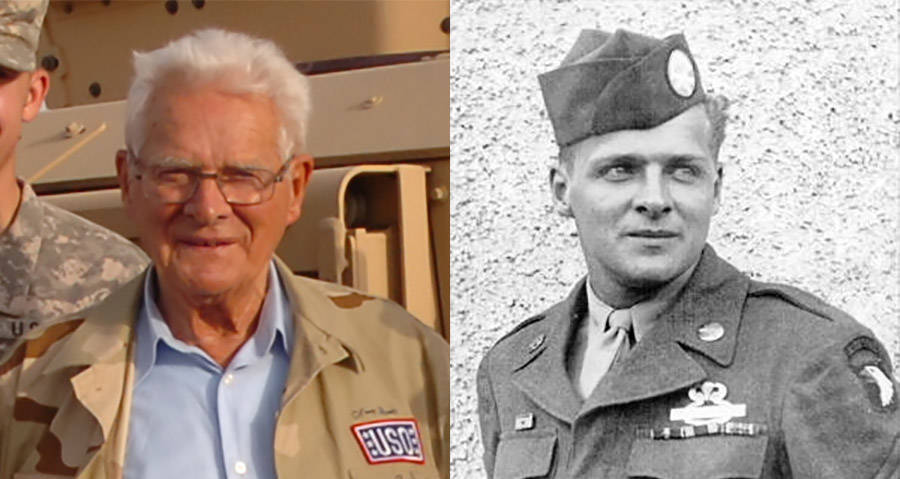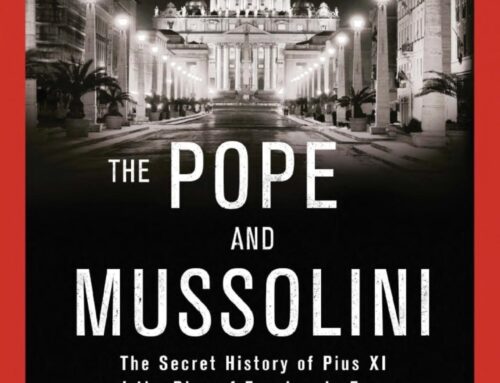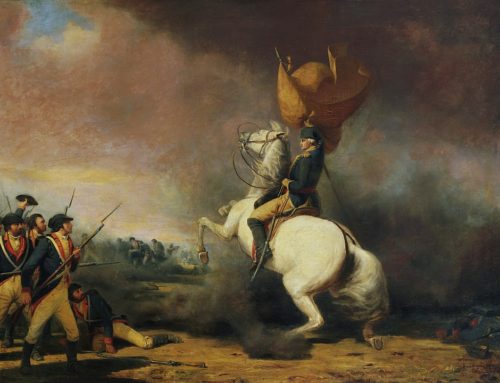Originally published in January 2003
This past week three of members of Easy Company, 506th Parachute Infantry Regiment, 101st Airborne Division, U. S. Army spent significant time with the fixed income department of Lazard and our clients. Their exploits were chronicled in a book Band of Brothers and the HBO video series produced by Tom Hanks and Steven Spielberg.
Buck Compton, Bill Guarnere, and Don Malarkey are three of the four survivors on an engagement named Brecourt Manor that occurred on June 6, 1944—the first day of the Battle of Normandy. In listening to them, we learned to appreciate the generation of Americans who fulfilled the finest American traditions in combating the Nazi menace. Each of the 140 men and seven officers who formed the original company followed a different route. They were special in their values. They put a premium on physical well-being, hierarchical authority, and being part of an elite unit. They were idealists, eager to merge themselves into a group, fighting for a cause, actively seeking an outfit with which they could identify, join, and relate to as a family. They wanted to be the best, and through incredible sacrifice they accomplished their mission. The 147 members of Easy Company were the nonpareil combat paratroopers on the face of the earth circa 1941-45. At the Battle of Brecourt Manor, a dozen members of E Company turned German cannons into dynamited ruins. We cannot fully assess the significance of this action to the victory at Normandy. It certainly saved lives, and made it much easier—perhaps even made it possible for tanks to come inland at Utah Beach.
Tom Hansen, an instructor at West Point, explained why this engagement is part of the current curriculum at the academy. The victory of the Americans demonstrates the leadership qualities of unseasoned troops that needed to use ingenuity and courage to defeat heavily fortified, entrenched, and seasoned opponents.
While the term special generation of Americans is starting to become a hackneyed phrase, I do believe that our guests were exemplars of the finest qualities of our people. They volunteered for $50 a month extra pay to join a fighting unit that was expected to take risks far beyond the scope on an ordinary soldier. As with most of the members of Easy Company, these men came from lower middle class families that were economically buffeted by the depression. The mother of Bill Guarnere, the youngest of ten children, falsely vouched that Bill then fifteen was eighteen in order that he could join the CMTC (Civilian Military Training Corps). Don and Buck needed to work to pay for their college educations. From June 6,1944 Easy Company suffered 22% deaths and 74% casualties. Thus, only 4% of the original members of Easy Company did not receive campaign injuries. In training and combat they learned selflessness and found the closest brotherhood they ever knew. They discovered that in war, men who loved life would give their lives for them. Bill Guarnere almost sacrificed his life, but did loose a leg to save the life of his friend Joe Toye.
From the rigorous training in Georgia in 1942 to the disbanding in 1945, this remarkable company took a series of very tough assignments in Europe. They parachuted into France early on D-Day morning; they parachuted into Holland during the Arnheim campaign; they were the Battered Bastards of the Bastion of Bastogne, brought in to hold the line although surrounded, in the Battle of the Bulge, and then spearheaded the counteroffensive.
While Buck, Bill, and Don are lifelong friends, truly closer than brothers, they have led different professional lives and their conservative views reflect different dispositions. On one extreme Bill revels in very short answers that he delivers instantly. Only occasionally will he smile indicating that maybe in answers are tongue in cheek. Buck on the other hand is most deliberative and answers in carefully measured words of several paragraphs.
The uniqueness of each of the three evenings that I spent with Buck, Bill, and Don reflected the different questions posed by the attendees at the dinner. I thought it might be helpful to share both the questions and answers given over the evenings of June 18th, June 19th, and June 20th 2003.
When you fought did you understand you were engaging in a combat of good against evil?
All three men spoke candidly about their reasons for volunteering to fight the Germans. They reminded us that this was a period filled with even more sustained patriotism than existed following September 11, 2001. Buck commented that it was a sign of cowardice for a young man of military age not to be in uniform. All three indicated that they knew nobody who did not try to enlist. They honestly reflected that at the time they did not know of the unique menace and cruelty of the Germans. They did however respond to the declaration of war by Germany against us. Thus, Bill, Don, and Buck gladly sacrificed their youth to defeat a country aimed at subjugating the free world. In hindsight, these men indicated the revelation of Nazi horrors provided an added justification for defending the ideas of America.
What were your feelings toward First Lt. Herbert Sobel of Chicago, the initial member of E company, and its Commanding Officer?
Only Don and Bill trained under this chicken shit martinet. Buck never knew Sobel. Buck and Don had divided feelings about Sobel. On the one hand, both of them felt he would be a terrible commander likely to be shot by his own men within a few hours of Normandy if he had retained his command position. His exhausting cruel training of the men had positive consequences. First of all, they recognized that whether by design or accident Sobel created the finest company in the world and created a tremendous sense of solidarity within the unit. Secondly, they respected Sobel for his willingness to endure along with the men all the hardships of soldiering, including the endless night marches with full field equipment without breaks for water or cigarettes.
Buck started crying when he spoke to my friend Cindy Bernat, Eloise, and I about Sobel’s sons actions at a reunion of the company. Sobel’s son said that he knew nothing about the deleterious characteristics of his father. All he knew was that he had a loving, caring, patriotic father. Buck commented that the Easy Company survivors applauded vigorously the courage of this man to attend the reunion.
What was your feeling as you prepared to drop over Normandy?
All three felt confident that they could defeat the Germans. The thought of death was on the one hand ever present on the other there was a feeling of immortality. Bill Guarnere mentioned a deep -seated desire to kill Germans to revenge the death of his brother in Italy.
What kind of equipment did you have when you dropped into Normandy?
Don Malarkey who weighed one hundred and fifty pounds carried another one hundred and fifty pounds of equipment. He said it took four men to get him into the airplane.
What was your feeling when you were in the airplane?
All three agreed that they were anxious to jump. Germans attacked the American planes with fairly heavy artillery and the men felt very vulnerable in the air.
Why did you use leg bags?
The leg bags were a last minute improvisation introduced by the British. The thought was that it would be easier to jump if one had his equipment attached to only his leg. Unfortunately, the leg bags had not been tested thoroughly. They broker away from the men when they were parachuting. Fortunately, one could retrieve equipment from other paratroopers.
What did you feel about the British?
Despite the slogan, Americans are over paid, over fed and over here, there was enormous affection between the two English-speaking peoples. They commented that almost all the British townspeople cried when they men were departing for Normandy.
How did you survive the Battle of the Bulge? You did not have the proper winter clothing, were outnumbered and out gunned.
All three said that they would have died rather than surrendering to the Germans. They recalled the Texans stand against the Mexicans at the Alamo. They felt that they were well entrenched and could withstand German attacks for a considerable time. While initially they suffered from lack of ammunition, ultimately the American airdrops overcame that deficiency. While they admired General Patton, they did not feel that he rescued them.
What was the weather like at Bastogne?
The weather was certainly cold, and frostbite was a problem. Don Malarkey cut up burlap bags and wrapped them around his feet. Bill Guarnere mentioned the soldiers dressed a little bit like street people because they borrowed whatever necessary apparel was necessary to get additional warmth.
Don Malarkey was asked what it was like when Bill Guarnere was seriously wounded, resulting in his loss of a leg. Don tearfully confided that the first ten days of January 1945 were the worst of his life. Two of his best friends, Bill Guarnere and Joy Toye were seriously wounded. Another friend was killed.
Don Malarkey was asked about the lack of consistency among the three. Don was hesitant to discuss the discrepancies. He merely said that he was the only one of the three who was not injured served from June 6, 1945 until the end of the war. Because of injuries both Buck and Bill could not continue to actively fight with Easy Company.
Buck Compton was asked about his present feelings toward Germany and France. He commented that (1) we must recognize that countries act in their own self-interest. Thus, we must recognize that alone we face the burden of defending our ideals and standard of living. (2) He was disappointed more in the French than the Germans given our sacrifices for the former.
All three were asked about World War II leaders. All three had the highest admiration for Winston Churchill. They felt the British Prime Minister was key to Britain continuing to fight alone from June 1940 until June 1941. Churchill encouraged Don to return to University after the war and keep up his interest in English. Except for Montgomery, all three felt that Eisenhower, Patton, and Bradley were excellent generals. Buck Compton commented that at their low level, none of the men had the experience to evaluate fairly the general.
All three were asked about personal sacrifices for fighting in World War II. Bill Guarnere who lost both a brother and his leg stated firmly that he never considered his wartime experience painful irrespective of his personal losses. Buck Compton said that three years of one’s life is a small price to pay to live in America, a country dedicated to freedom. Don Malarkey also indicated his pride that serving one’s country is an honor.




